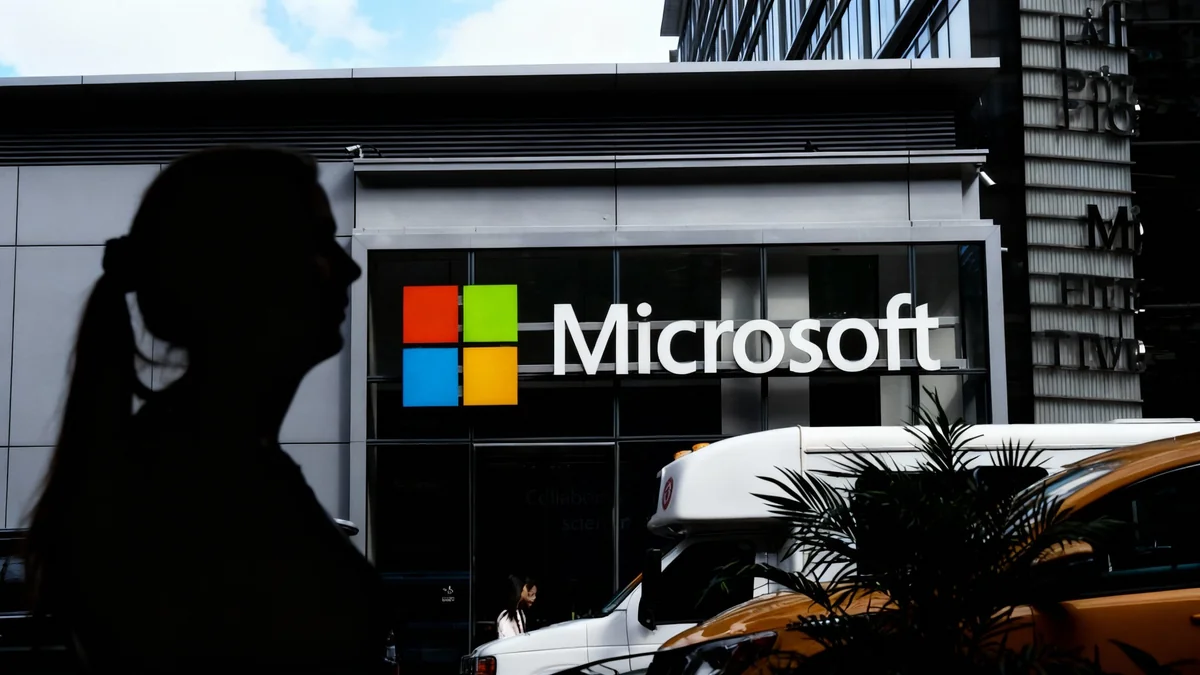The United States government has granted Microsoft a license to export advanced Nvidia artificial intelligence chips to the United Arab Emirates. This approval marks a significant development in the global technology landscape, enabling Microsoft to proceed with a multi-billion dollar expansion of its AI and cloud infrastructure in the Gulf nation.
The decision comes amid stringent U.S. export controls designed to manage the global distribution of high-performance computing technology. Microsoft confirmed it is the first company to receive such a license under the current administration, having met extensive security protocols.
Key Takeaways
- The U.S. Commerce Department has licensed Microsoft to ship high-end Nvidia AI chips to the United Arab Emirates.
- Microsoft plans to increase its investment in the UAE to over $7.9 billion between 2026 and 2029, with $5.5 billion dedicated to AI and cloud infrastructure.
- The approval allows for a fourfold increase in Microsoft's AI computing capacity in the region.
- This move is part of a broader U.S. strategy to strengthen technological alliances with the UAE and counter China's influence in the Middle East's growing AI sector.
A Landmark Approval for AI Expansion
The U.S. Department of Commerce has officially authorized Microsoft to export the latest generation of Nvidia AI chips to the UAE. These components are essential for building and operating the powerful data centers required for advanced artificial intelligence models.
Previously, a project to build a large-scale AI data center campus in Abu Dhabi, a partnership involving the Microsoft-backed Emirati AI company G42, faced delays due to these export controls. The new license removes this critical barrier, paving the way for accelerated development.
Microsoft President Brad Smith stated that the company secured the license in September after a rigorous review process. He emphasized the strict conditions that had to be met.
“You cannot get those export licences unless you’re able to meet the requirements that have been imposed by the US government. We earned it by satisfying very stringent cyber security, physical security and other security requirements.”
This approval signals a carefully managed approach by Washington, balancing national security concerns with strategic economic and technological partnerships.
Fueling a Multi-Billion Dollar Investment
With the regulatory hurdle cleared, Microsoft is set to significantly increase its financial commitment to the UAE. The company plans to invest more than $7.9 billion from 2026 to 2029, a notable increase from the $7.3 billion invested over the past three years.
A substantial portion of this new capital, approximately $5.5 billion, is earmarked for capital expenditures on AI and cloud infrastructure. This investment is designed to dramatically scale up the region's computing capabilities.
Investment at a Glance
- Previous Investment (3 years): $7.3 billion
- Planned Investment (2026-2029): Over $7.9 billion
- AI & Cloud Infrastructure Spending: $5.5 billion
- Resulting Computing Power: A fourfold increase in the UAE
The influx of advanced Nvidia chips will allow Microsoft to expand its AI computing power in the UAE by a factor of four. Smith indicated that this is likely just the beginning, anticipating the need for more licenses within the next six to twelve months to keep pace with demand and technological advancements.
The Geopolitical Context of the AI Race
This development is set against the backdrop of an intensifying technological competition between the United States and China. The Middle East has emerged as a key arena where both nations are vying for influence in the burgeoning field of artificial intelligence.
The U.S.-UAE Tech Alliance
In May, a deal was announced between the U.S. and the UAE to construct a major AI data center campus in Abu Dhabi. Microsoft's $1.5 billion investment in G42, the Emirati AI firm leading the project, was a cornerstone of this agreement. The partnership is widely seen as a strategic move to align the UAE's formidable AI ambitions with U.S. technology and security interests, thereby reducing China's potential role in the region's tech infrastructure.
The UAE has placed artificial intelligence at the center of its economic diversification strategy. By becoming an early and widespread adopter of AI, the nation aims to establish itself as a global technology hub.
Brad Smith highlighted the importance of this partnership in what he termed the “AI diffusion race.” He argued that ensuring broad, global access to AI technology is critical to preventing increased economic inequality.
“I think the AI diffusion race is probably even more important than the race on the technology frontier. And this is where the stronger relationship between the United States and the United Arab Emirates becomes critical.”
By empowering the UAE as a regional AI leader, the U.S. aims to influence how the technology is deployed across the “global south,” an area encompassing the Middle East, Southern Europe, Africa, and parts of Asia.
Future Outlook for Regional AI Development
The approval for Microsoft to export Nvidia chips is more than a single transaction; it establishes a precedent for future collaboration. It demonstrates a pathway for U.S. tech companies to deploy cutting-edge technology in strategically important regions while adhering to strict government oversight.
Microsoft has not yet specified the exact deployment locations for the newly licensed chips, but the investment will support the broader build-out of its cloud and AI services in the UAE.
Smith expressed confidence in securing future licenses, citing the comprehensive work done to meet the administration's security standards.
“I have confidence in our ability to get these licences given the work that we have done to meet the stringent requirements and conditions that the administration quite properly has established.”
As the UAE continues to pour resources into its AI ecosystem, the partnership with Microsoft, now supercharged by access to top-tier hardware, positions the nation to become a significant player in the global AI landscape and a key U.S. ally in the ongoing technological competition.





